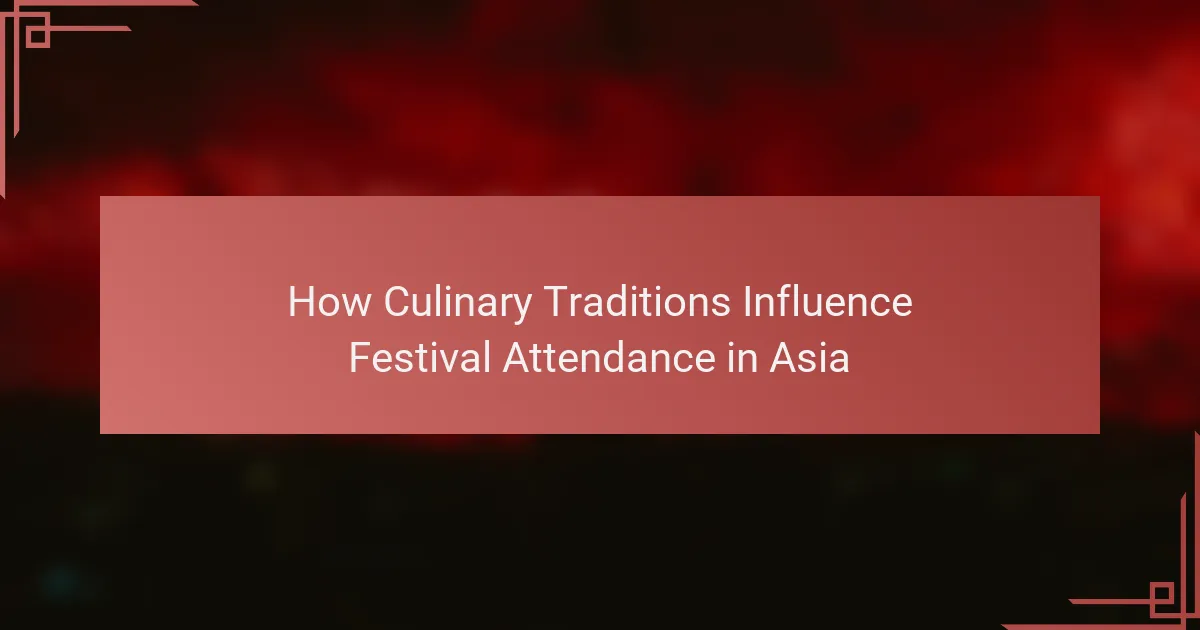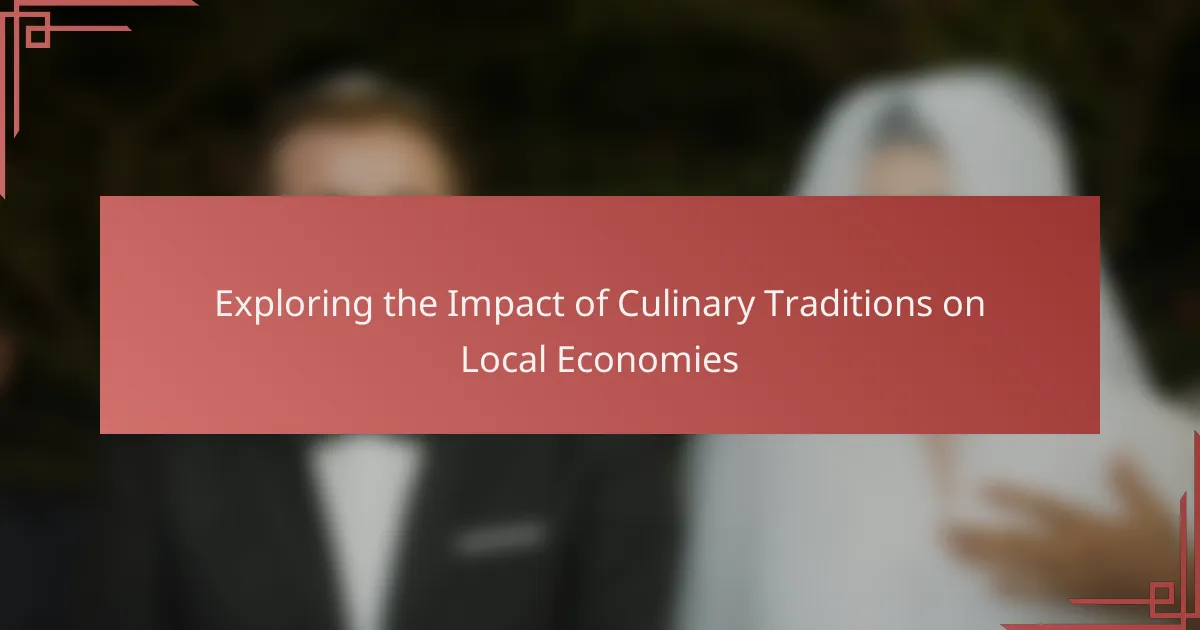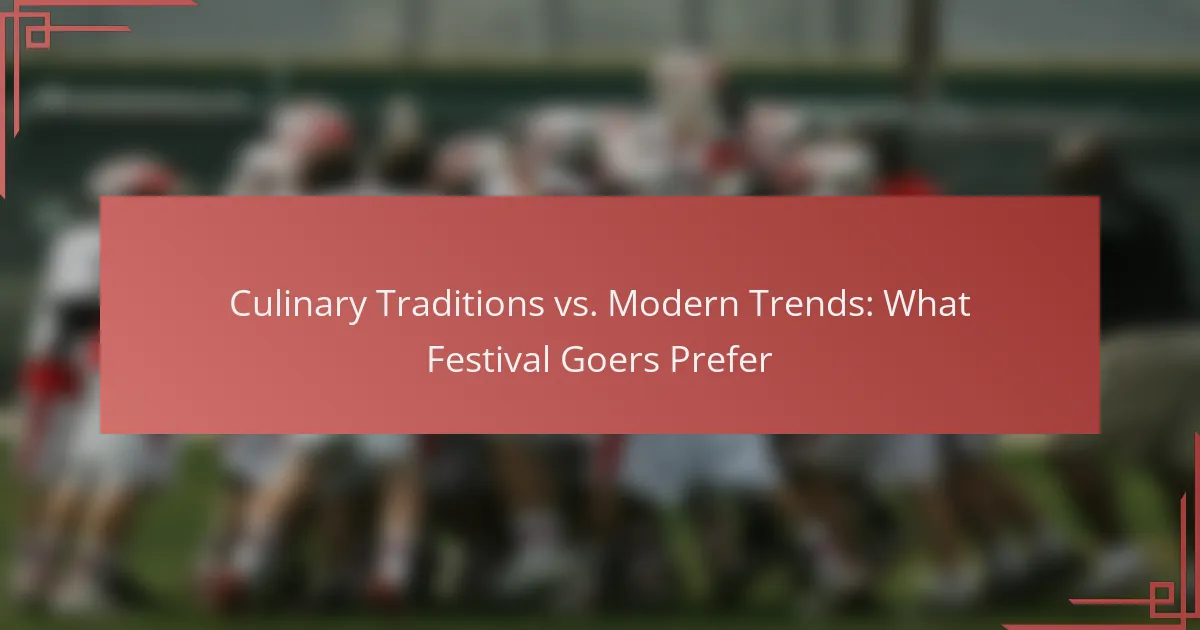Experiencing authentic culinary traditions at festivals is a delightful way to immerse yourself in local culture and heritage. By attending events that showcase regional cuisine and traditional cooking methods, you can savor genuine flavors and learn about the stories behind the dishes. Engaging in culinary workshops at these festivals further enhances your experience, allowing you to acquire hands-on skills from skilled chefs while celebrating the rich tapestry of global culinary practices.

How can you find authentic culinary festivals in the United States?
To find authentic culinary festivals in the United States, start by identifying local events that showcase regional cuisine and traditional cooking methods. These festivals often celebrate local ingredients and cultural heritage, providing a genuine taste of the area’s culinary traditions.
Research local food festivals
Begin your search by looking for food festivals in your area or nearby cities. Websites like Eventbrite or local tourism boards often list upcoming culinary events. Focus on festivals that emphasize local ingredients, traditional recipes, and community involvement.
Consider attending smaller, community-run festivals, as they often provide a more authentic experience compared to larger commercial events. Look for festivals that feature local chefs and home cooks, as they are likely to offer genuine culinary traditions.
Explore regional culinary events
Regional culinary events can provide deeper insights into specific food traditions. Explore state fairs or regional food competitions that highlight local specialties, such as barbecue in the South or seafood in New England. These events often include cooking demonstrations, tastings, and workshops.
Check for seasonal harvest festivals, which celebrate local produce and traditional dishes. These events typically feature farm-to-table experiences and may include opportunities to interact with local farmers and chefs.
Check social media for festival announcements
Social media platforms are valuable resources for discovering culinary festivals. Follow local food bloggers, chefs, and culinary organizations on platforms like Instagram and Facebook to stay updated on upcoming events. Many festivals promote themselves through social media, sharing details about vendors, activities, and ticket sales.
Join local food groups or forums where members share information about food-related events. Engaging with these communities can lead to recommendations for authentic culinary experiences that may not be widely advertised.
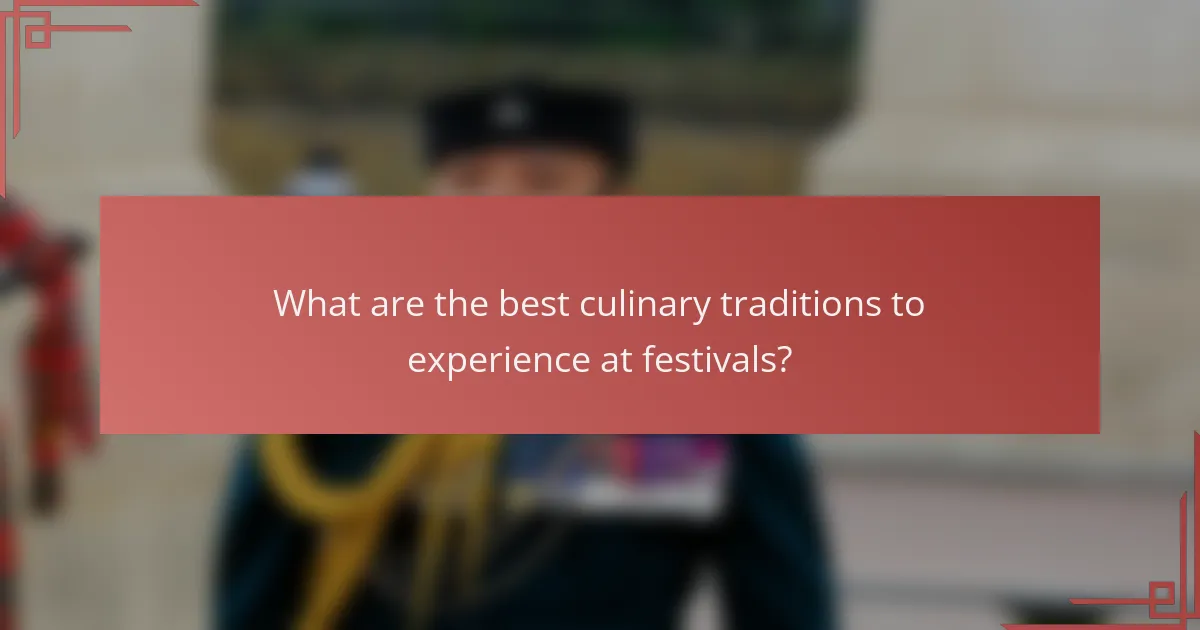
What are the best culinary traditions to experience at festivals?
Festivals around the world offer a rich tapestry of culinary traditions that reflect local culture and history. Engaging with these authentic practices can enhance your appreciation for the food and the people who create it.
Italian pasta-making traditions
Italian festivals often showcase the art of pasta-making, where visitors can witness the transformation of simple ingredients into beloved dishes. Traditional methods include hand-rolling dough and using specialized tools like a pasta machine or a rolling pin.
Participating in a pasta-making workshop at a festival allows you to learn techniques such as making fresh tagliatelle or ravioli. Look for events that feature local ingredients, as this enhances the authenticity of the experience.
Mexican street food culture
Mexican festivals celebrate vibrant street food culture, offering a variety of dishes that highlight regional flavors. Popular items include tacos, tamales, and elote, often prepared right in front of you by skilled vendors.
To fully enjoy this culinary tradition, try to sample different types of tacos, each with unique fillings and salsas. Be mindful of hygiene practices, especially when eating from street vendors, to ensure a safe and delicious experience.
Japanese sushi preparation techniques
At Japanese festivals, sushi preparation is often demonstrated by skilled chefs, showcasing techniques that have been refined over centuries. Key aspects include selecting high-quality fish, mastering the art of rice preparation, and learning the proper knife skills.
Participating in a sushi-making class can provide hands-on experience with rolling sushi and understanding flavor pairings. Pay attention to the balance of ingredients and the importance of presentation, as these are crucial elements of Japanese culinary tradition.
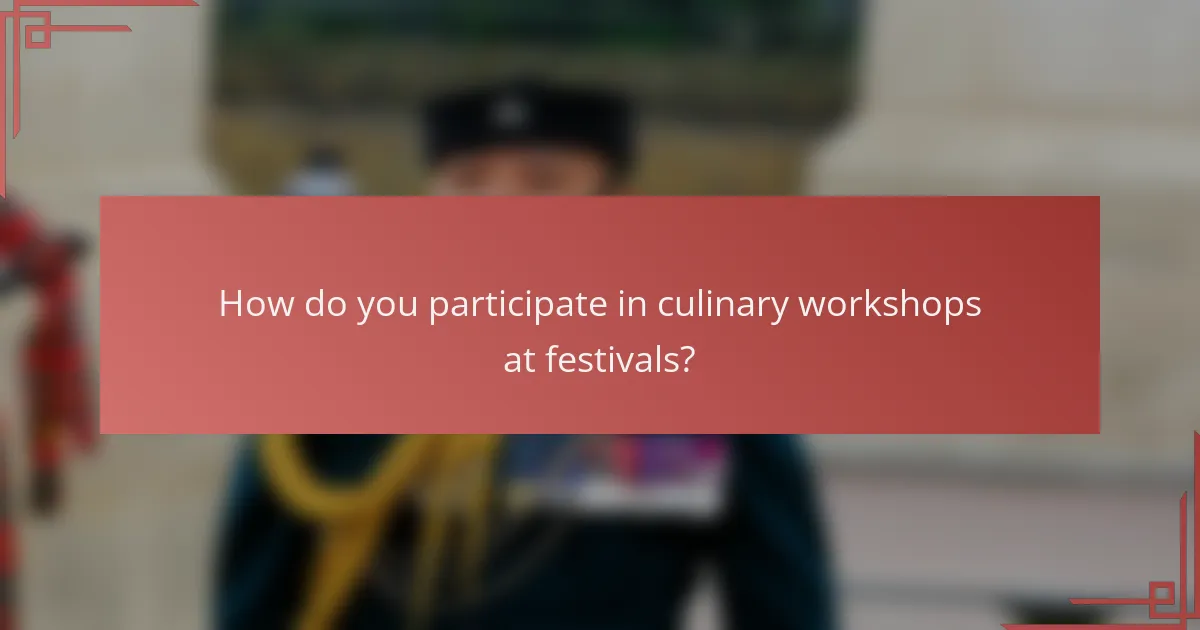
How do you participate in culinary workshops at festivals?
Participating in culinary workshops at festivals involves registering in advance, bringing the right tools, and actively engaging with chefs. These workshops offer hands-on experiences that allow you to learn authentic cooking techniques and recipes from skilled professionals.
Register in advance for workshops
Many culinary workshops at festivals require prior registration due to limited space and high demand. Check the festival’s official website or contact organizers to secure your spot early. Registration fees may vary, typically ranging from USD 20 to USD 100, depending on the workshop’s duration and complexity.
Some festivals offer early bird discounts or package deals for multiple workshops, so consider planning your schedule in advance to take advantage of these savings.
Bring necessary cooking tools
To fully participate in culinary workshops, it’s essential to bring any required cooking tools as specified by the instructors. Common items include knives, cutting boards, and measuring cups. Some workshops may provide tools, but having your own can enhance your comfort and efficiency.
Check the workshop details for a recommended list of tools to avoid surprises. If you’re traveling, consider packing lightweight, portable tools to minimize luggage hassle.
Engage with chefs and instructors
Active engagement with chefs and instructors during workshops can significantly enhance your learning experience. Don’t hesitate to ask questions, seek clarifications, and share your cooking experiences. This interaction can provide valuable insights and tips that you might not find in cookbooks.
Networking with culinary professionals can also open doors for future opportunities, such as internships or collaborations. Take the time to connect with them after the workshop for further guidance and mentorship.
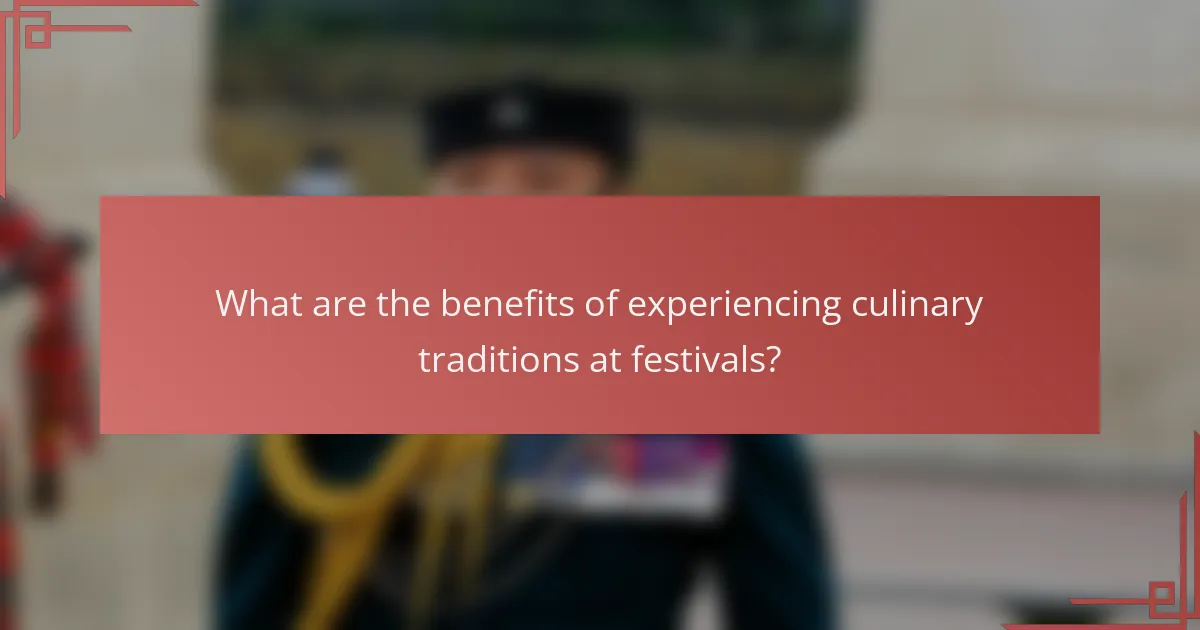
What are the benefits of experiencing culinary traditions at festivals?
Experiencing culinary traditions at festivals offers a unique opportunity to engage with local flavors, techniques, and cultures. These events provide a platform for learning, tasting, and connecting with the people behind the food, enriching your understanding of their heritage.
Learn authentic cooking techniques
Festivals often feature live cooking demonstrations where chefs showcase traditional methods passed down through generations. Attendees can observe and even participate in these sessions, gaining hands-on experience with techniques like fermentation, grilling, or baking in clay ovens.
Consider taking notes or asking questions during these demonstrations to deepen your understanding. Many festivals also offer workshops that allow for more in-depth learning, so look for those opportunities to enhance your skills.
Connect with local cultures
Culinary festivals serve as a vibrant gateway to local cultures, allowing you to meet artisans, chefs, and food enthusiasts. Engaging in conversations about their culinary practices and traditions fosters a deeper appreciation for their way of life.
Participating in cultural activities, such as traditional dances or storytelling sessions, can further enrich your experience. This interaction not only enhances your understanding of the food but also builds connections with the community.
Taste diverse cuisines
Festivals typically showcase a wide array of dishes, representing various regions and cultural influences. This diversity allows you to sample foods that you might not encounter in your everyday life, expanding your palate and culinary knowledge.
When attending, consider trying a mix of popular dishes and lesser-known specialties to fully appreciate the range of flavors available. Keep an eye out for local ingredients and seasonal specialties, as these often highlight the region’s culinary identity.
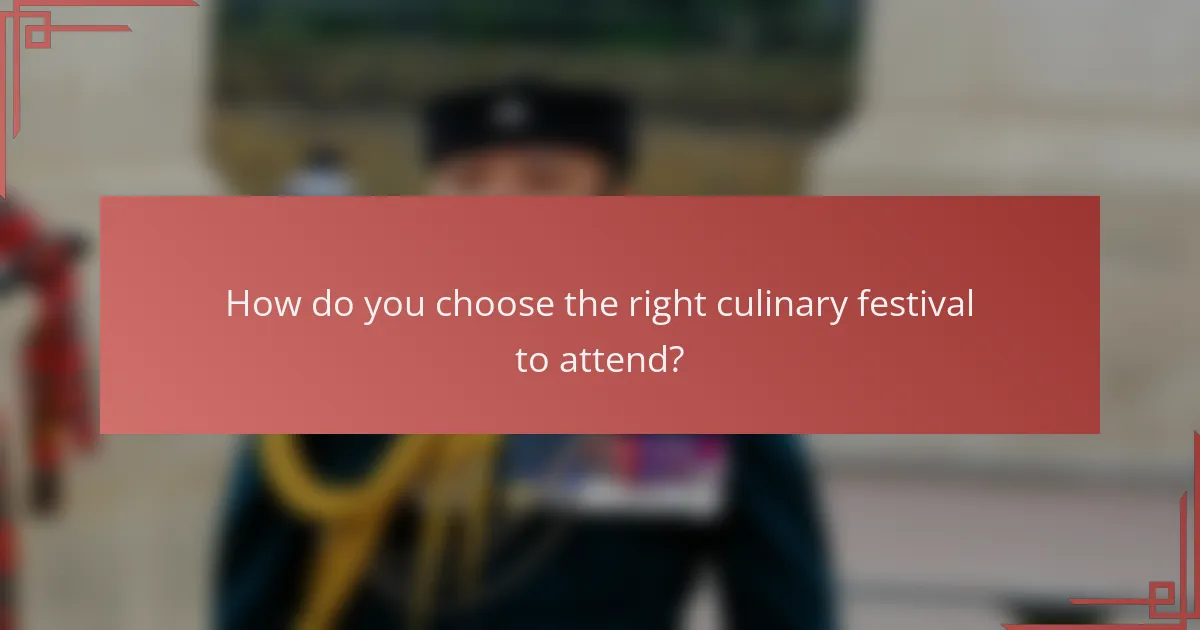
How do you choose the right culinary festival to attend?
Choosing the right culinary festival involves aligning your personal tastes with the festival’s offerings, location, and reputation. Consider what types of cuisine excite you, the scale of the event, and feedback from previous attendees to ensure a fulfilling experience.
Consider your culinary interests
Your culinary interests should guide your festival choice. If you love street food, look for festivals that highlight local vendors and food trucks. For those who prefer gourmet experiences, seek out festivals featuring renowned chefs or fine dining options.
Additionally, consider the types of cuisines represented. Some festivals may focus on specific regional foods, while others might offer a diverse array of international dishes. Knowing what you enjoy will help narrow your options.
Evaluate festival size and location
The size and location of a culinary festival can significantly impact your experience. Smaller, local festivals often provide a more intimate atmosphere, allowing for personal interactions with chefs and vendors. Larger festivals may offer a wider variety of food but can be overwhelming.
Location is also crucial. Festivals in urban areas may have easier access to public transportation and accommodations, while those in rural settings might offer unique local flavors but require more planning to reach. Consider your travel preferences and logistics when selecting a festival.
Look for reviews and recommendations
Researching reviews and recommendations can provide valuable insights into the quality of a culinary festival. Check online platforms, social media, and food blogs for firsthand accounts from previous attendees. Look for patterns in feedback regarding food quality, organization, and overall enjoyment.
Additionally, ask friends or family who have attended similar festivals for their recommendations. Personal experiences can often highlight hidden gems or potential pitfalls that online reviews may not cover.
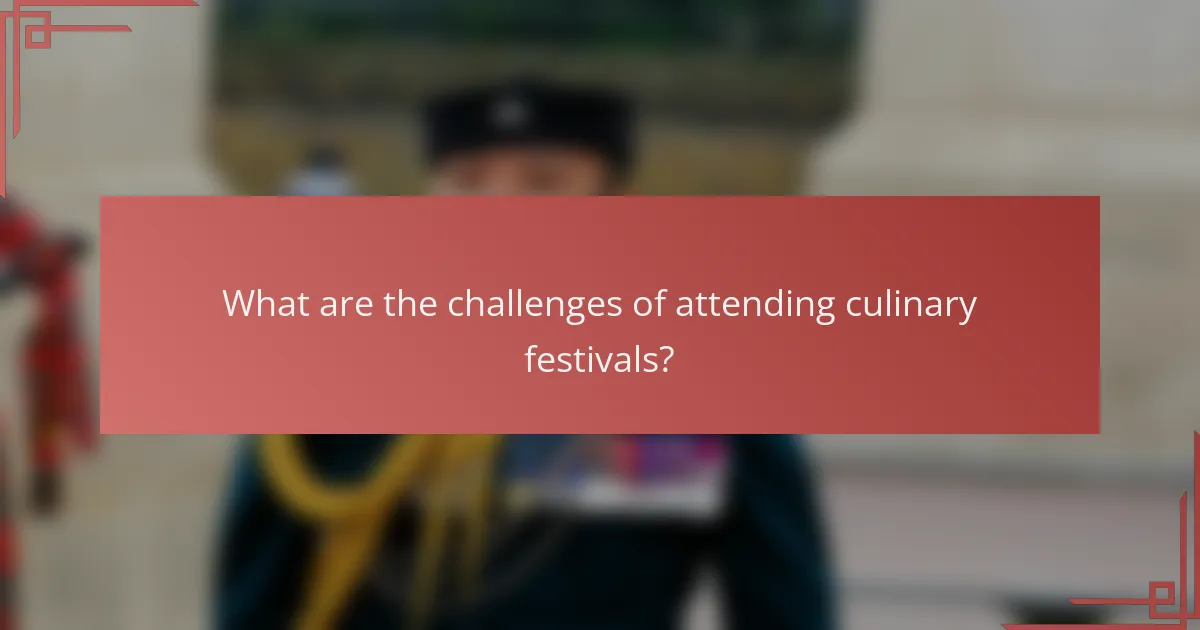
What are the challenges of attending culinary festivals?
Attending culinary festivals can be an exciting experience, but it comes with several challenges that can affect your enjoyment. Understanding these obstacles can help you plan better and make the most of your visit.
Crowds and long lines
Crowds are a common challenge at culinary festivals, often leading to long lines for popular food stalls and events. Arriving early can help you avoid the busiest times, allowing you to sample dishes without excessive waiting.
Consider visiting during weekdays or off-peak hours if the festival spans multiple days. This strategy can significantly reduce your time spent in queues and enhance your overall experience.
Limited access to workshops
Many culinary festivals offer workshops, but space is often limited, making it difficult to secure a spot. Pre-registration is usually required, so check the festival’s website in advance to reserve your place.
Additionally, some workshops may have fees associated with them. Be prepared for these costs and consider which sessions align with your interests and culinary goals.
High costs of participation
Participating in culinary festivals can be expensive, with costs including entry fees, food purchases, and workshop fees. Budgeting ahead of time is crucial to avoid overspending.
Look for early bird tickets or group discounts, which can help lower costs. Additionally, consider setting a daily spending limit to manage your expenses effectively throughout the festival.

